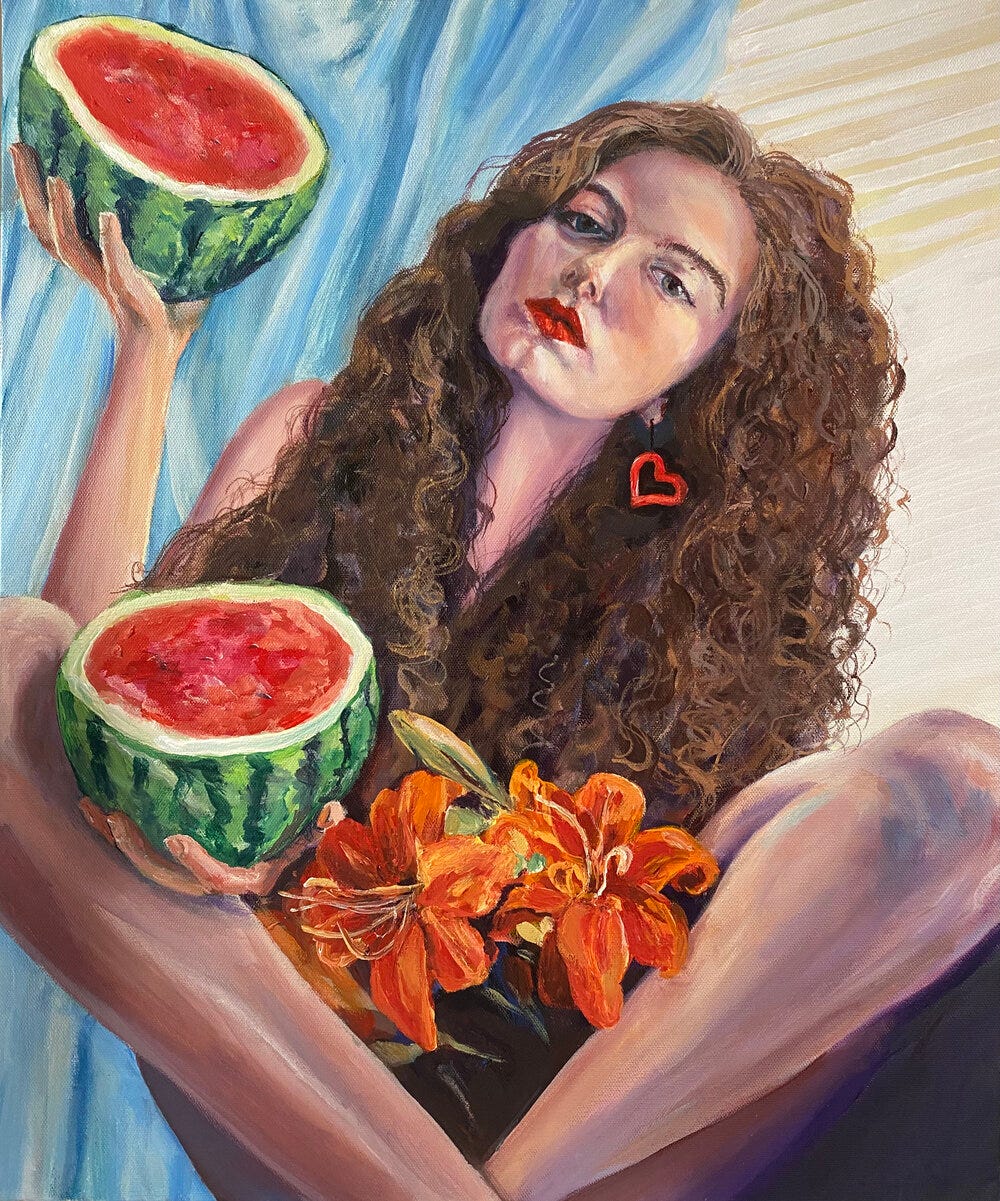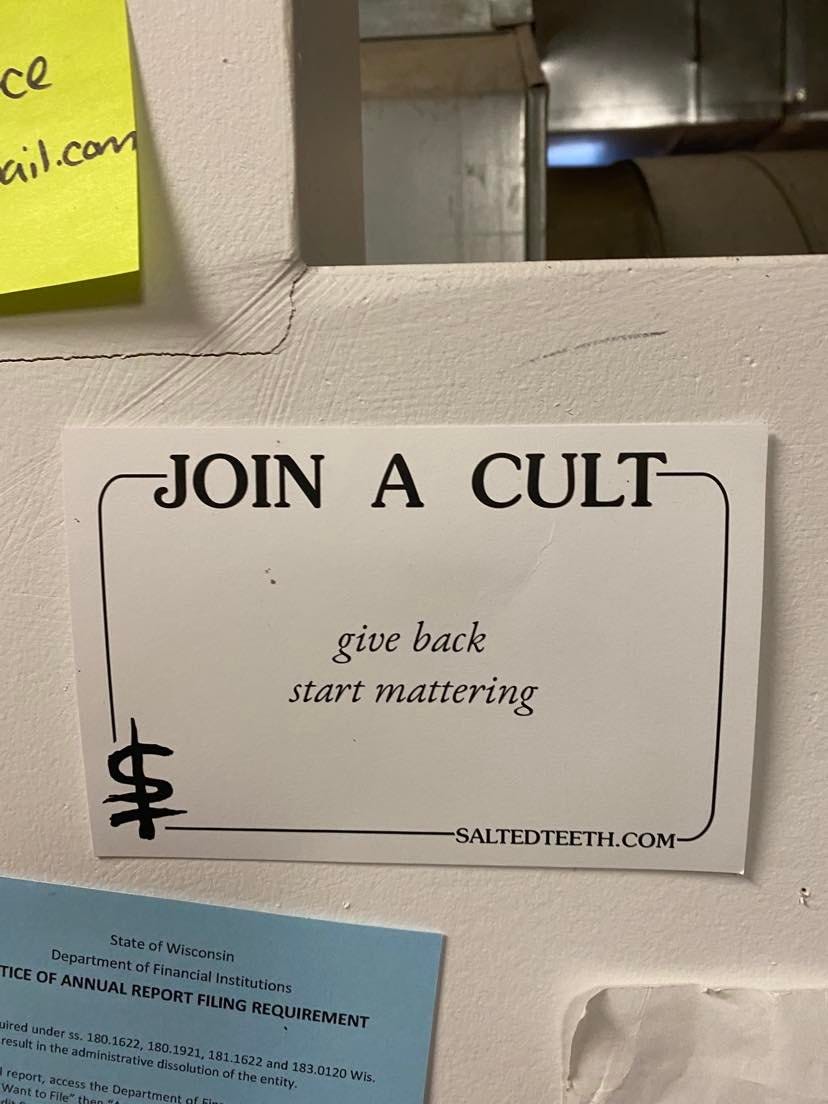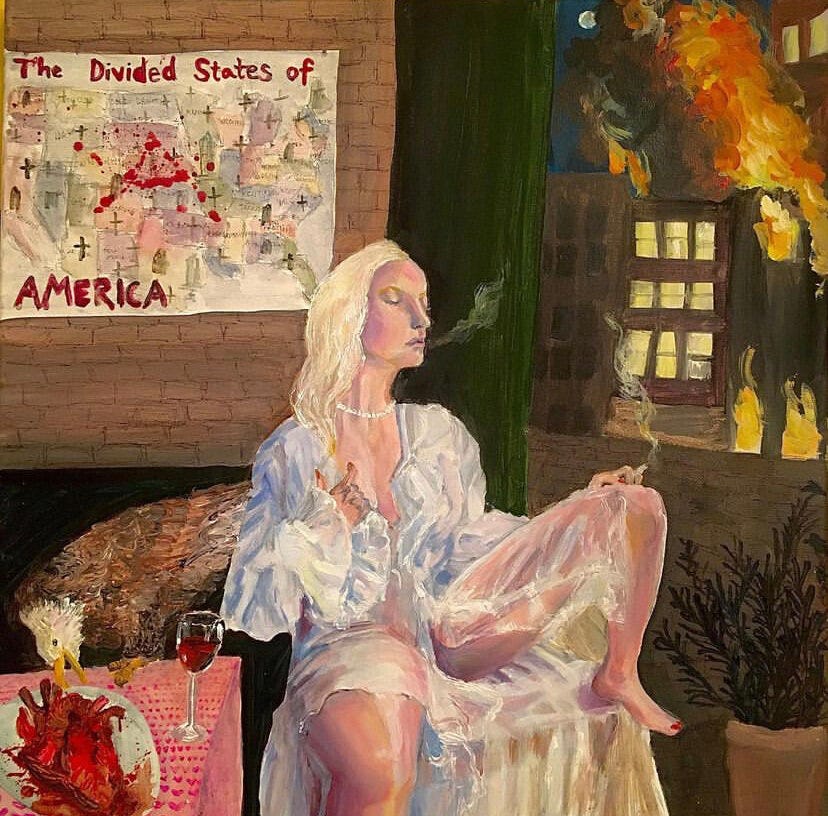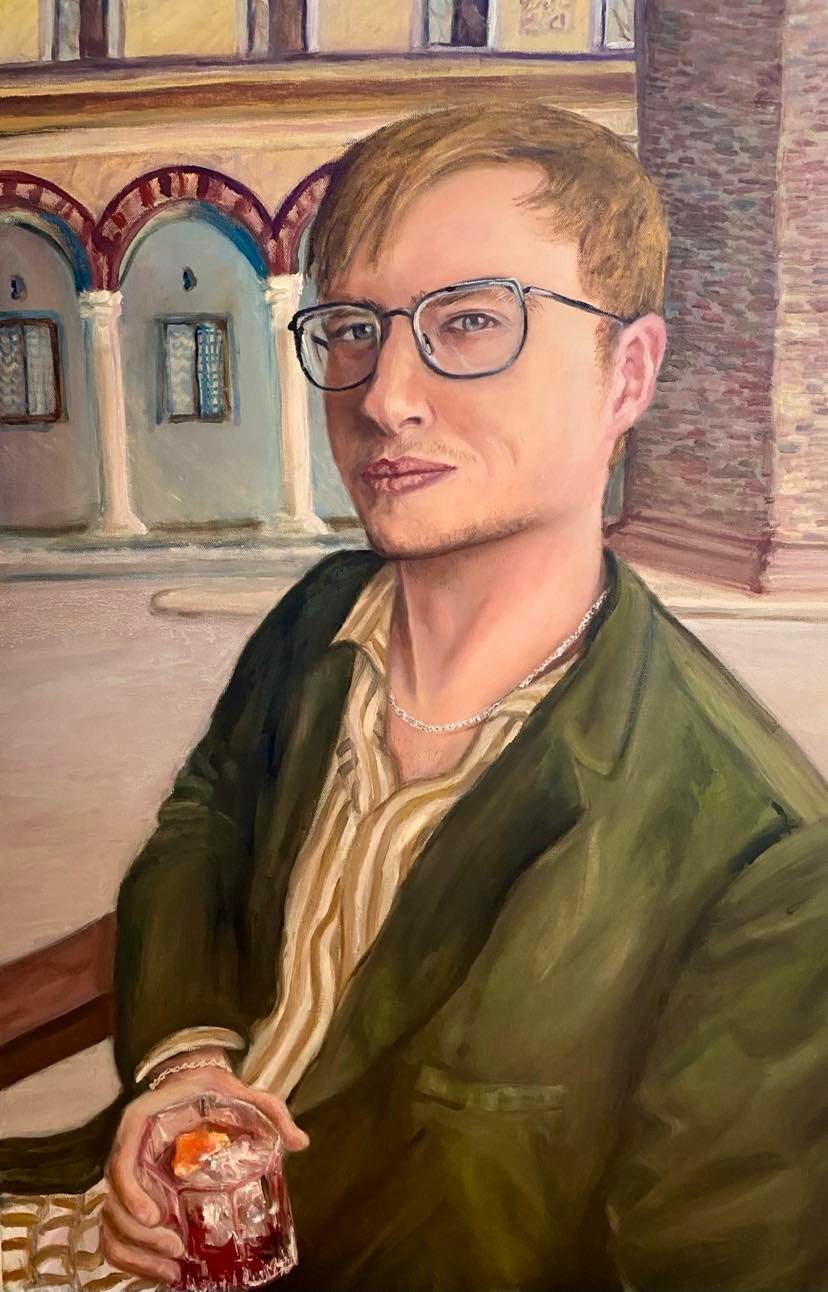Rena Medow Substack / self-portrait Rena Medow
Rena Medow is finishing up her philosophy degree at U-W Milwaukee. She is a poet, painter, YouTuber, and submissions editor for V.A. Press. She loves pole dancing, flowers and creative expression.
Rena is also the illustrator of BOOKS AND WOMEN’s own image <3 You can also commission her work!
Photo Roll Story
The writer picks a photo from her phone and tells us about it.
I'm working at Vegetarian Alcoholic Press, which is in the process of becoming a nonprofit. This picture is what is taped above Freddy's desk at our office. On our first meeting, Freddy (who runs V.A.) and I each gave each other inexplicably identical life updates: we had both fallen in love with people unexpectedly, and we had both become de facto cult leaders of our respective cults. Milwaukee winter does strange things to people! -Rena Medow
Painting Rena Medow
Pop-Up Questions
The writer picks five out of ten pop-up questions.
What is a quote that has endured in your mind?
“You say, who cares about white flowers? / I care about white flowers.” —Lisa Marie Basile
That line appears in my mind when I see white flowers, or other delicate and disregarded things. I’ve become very interested in a field of philosophy called care ethics lately, which is a feminist ethical theory based in the idea that we are all dependent on others in certain ways, and that meeting the demands of care present in our lives is our moral imperative and responsibility. This line feels resonant of that. I feel that our collective work should be to care more about nature, beauty and fragility.
What philosophy, religion or school of thought has given you something real, and what is that real thing?
Buddhism gave me a metaphysical approach to dealing with the ego. That aspect of Buddhism helped me reconcile with trauma and ultimately led me to study philosophy. My philosophy degree, specifically process metaphysics— has given me a much better framework for understanding the world and being a person.
What occupies your mind most often on being a woman in America?
Issues of autonomy. Autonomy for non-white-men is so contaminated by institutions and systemic oppression. Autonomy is so often a word associated with men, and women are often seen as casualties of male autonomy. I’ve been reading Queer Theory lately, and agree with Judith Butler’s idea that gender is unavoidably performative. I think feminism is crucial, even if people may not think it’s a relevant form of oppression. All forms of oppression support and enable all other types of oppression, and so I believe we must be intersectional in our approach as feminists.
What books comfort you?
After one of my best friends took her life in 2020, you (Maggie) had sent me a letter suggesting I check out Anne Lamott’s work. I must have read 6 of her books in a month. Grief made me turn toward the spiritual. Anne fits in the perfect intersection of humor, activism and spirituality. Also— Jack Gilbert’s poems and Sharon Olds’s “Stag’s leap” are always balms for heartache.
What music do you love on road trips?
I listened to Marvin Gaye’s “What’s going on?” album last Earth Day while driving through damp rural Wisconsin towns. The lyrics broke me, “Hey, mercy, mercy me, oh / Hey, things ain't what they used to be / What about this overcrowded land? / How much more abuse from man can she stand?”
It was the first day that really felt like spring.
Painting Rena Medow
The Interview
The writer answers questions about her life and work.
Tell us about your origin story as a poet and painter. How did you find this about yourself, and what was the path toward self-expression like?
I think that talking about the origin of self-expression is difficult, because it suggests that there is an origin of self-identity. Nowadays the narrative of my self-expression lines up neatly: my parents are artists, therefore I am an artist. I was handed a crayon. So I drew. It’s not talent. It’s a lifestyle, a way of communicating, a balm for loneliness, a way to feel like people are listening.
I love your poetry- it really speaks to me, and it feels so natural, not forced to fit into the idea of what you think modern poetry should be. What is your poetry writing process like?
I think poetry is as much a way of seeing the world as it is a way of trying to escape it. I write and I edit and I’m rarely happy with any of it. Sometimes I publish anyway, sometimes before even editing. If I had to define my process, I would say it’s pretty much fake it til you make it. I’m glad that my writing process is so dissimilar nowadays from my process of finding love or a job.
I know your best friend died, and this greatly impacted you as a human being. How did it inform or change your art?
For a year, all I did was write about her death and cry. I think that it made me more serious, which has made me strive to be less serious. I attribute all my feelings, accomplishments and failures since her death, to her death. It’s not a fair way of looking at it. I think of her less now, but the heartache still arises in my art and in every other part of my psyche.
Do you listen to music when you paint or write, and if so, what music?
Classical and jazz. When words come Into focus, feelings tend to arise and I lose concentration.
How has Covid affected your art?
At the beginning, I would have said that the pandemic helped my art, because it gave me a break from the service industry, and lots of free time. Nowadays I’m not so sure. Covid feels insidious, and my relationship to it has changed. I would say that ultimately it gave me more time and energy to confront my own habits around writing.
What are you working on now?
I wrote so many final essays this week for philosophy classes. Now I have to read around 50 manuscripts as the submissions editor for V.A. Press! Plus I’m moving and have two jobs! I’m busy! But I hope to have a second poetry manuscript out by the end of next year.







